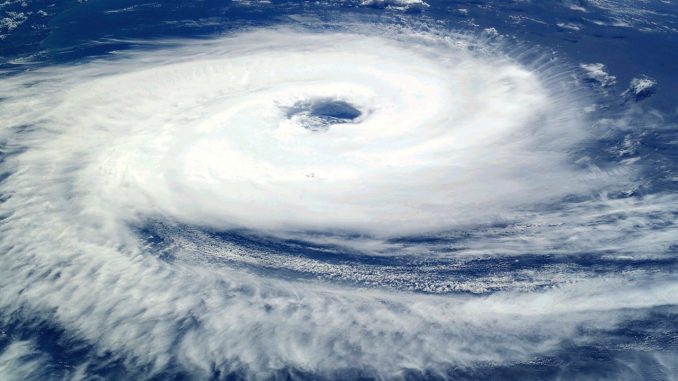
By Kevin Price, National News Editor, USADC.
One year ago — almost exactly — I wrote about Hurricanes Harvey and Irma, and who the “winners” were of such a terrible event. It appears nothing has changed as we begin the recovery process following Florence.
“One of the biggest winners in such events is crony capitalism. At some point, people have got to wonder about continuously rebuilding where it is obvious they could be hit and devastated by terrible storms. People think the winners of government subsidized property insurance are homeowners. After all, the builder gets off without consequence and the homeowner gets his home and much of his or her other property taken care of with little consequence (other than lots of time). But after each of these storms, businesses rebuild in places where it is practically guaranteed they will be destroyed. Taxpayers suffer with additions to the government’s near $20 trillion debt while builders, banks, and retailers have a money making machine called natural disasters. This is the epitome of moral hazard gone awry. Instead of having every incentive to build in responsible places, builders benefit building at locations they know will likely require rebuilding. This is a government perversion of the market, and the beneficiaries of it are big business.
In a culture that raises recycling to the highest of values, it is unconscionable for the government to treat expensive homes like disposable diapers.
“In the real world, if the government got out of the flood insurance business, companies would actually apply the principles of risk management and not give coverage where they know they will lose money or would provide premiums that make people think twice about buying a storm vulnerable home. Furthermore, irresponsible builders would be sued for building in such illogical places. That would give them incentives to build responsibly. Currently, thanks to so-called government insurance, people are developing a disposable attitude about their property, knowing it will only be around for a while, but government has it covered.
“Our current insurance system defies reason. It is a boon for crony capitalism, but an expensive embarrassment for taxpayers who will have to pay for this irresponsibility for generations to come.”
It has happened again and the only thing that has changed is the name of the storm. Florence has brought utter destruction, and all the conversation is about getting things “back to normal” as quickly as possible. But let’s be honest — there is absolutely nothing “normal” about disposable homes costing hundreds of thousands, and even millions of dollars. They can only exist in the bizarre world of government subsidies. If government could only pay out the claims based on the premiums received (you know, like real insurance), FEMA would be out of business tomorrow. We are compelled by compassion for those who often irresponsibly build where they shouldn’t, rather than for those who will be saddled by the debt of covering the cost for such poor decision making and planning.
“In the real world, if the government got out of the flood insurance business, companies would actually apply the principles of risk management and not give coverage where they know they will lose money…”
We will hear many conversations about helping those who need immediate assistance, the possible perpetrator called “Global Warning,” and the need to focus on compassion rather than responsibility, but very little about how to reduce these multi-billion dollar calamities. Harvey cost $125 billion and Katrina (adjusted for inflation) cost $160 billion in property damage. It is time to rethink our approaches for recovery after these catastrophic events.
It would be cheaper for the federal government to write checks for the full value of the last appraisal of a home before a major flood, with the application of real insurance standards going forward (thus prohibiting building in that area), than for the government to continually create disposable homes. In fact, with that payout, make it the official end of government subsidized insurance for that homeowner. In a culture that raises recycling to the highest of values, it is unconscionable for the government to treat expensive homes like disposable diapers. Major home builders and construction companies become the beneficiaries of such policies in a classic, crony capitalistic, fashion. The losers are taxpayers, both now and in the future.
It is time for government to get serious about such disasters and develop a real world strategy that addresses the needs of current homeowners and those being forced to to subsidize the home builders that are the chief beneficiaries of such poor planing.
In addition to his work with USADC, Kevin Price is a multi-award winning broadcast journalist, host of the nationally syndicated Price of Business show, and frequent guest on radio and TV shows around the country.

